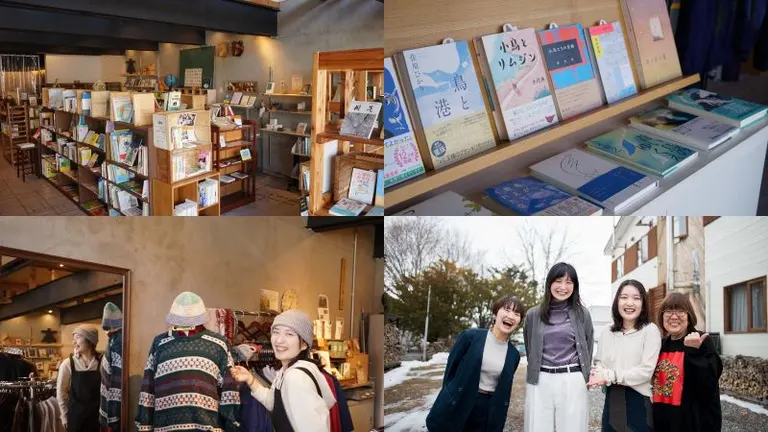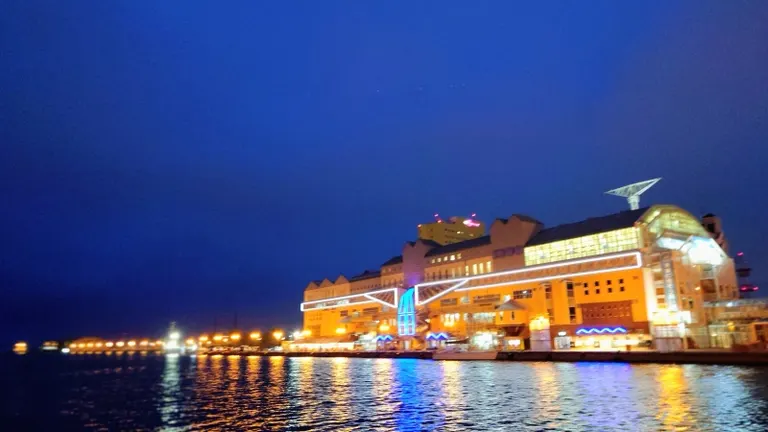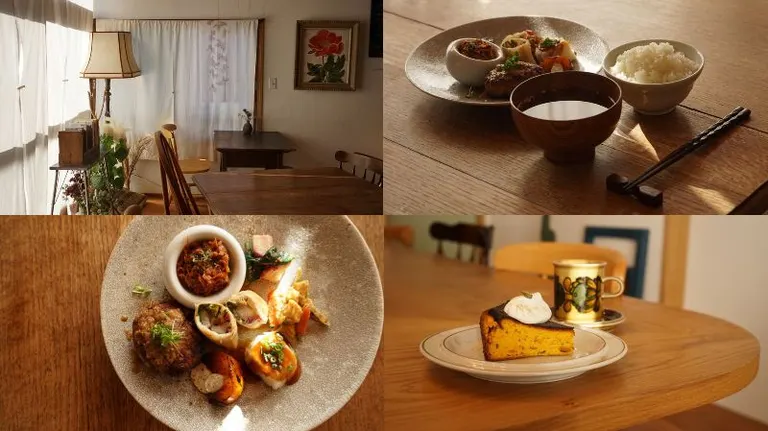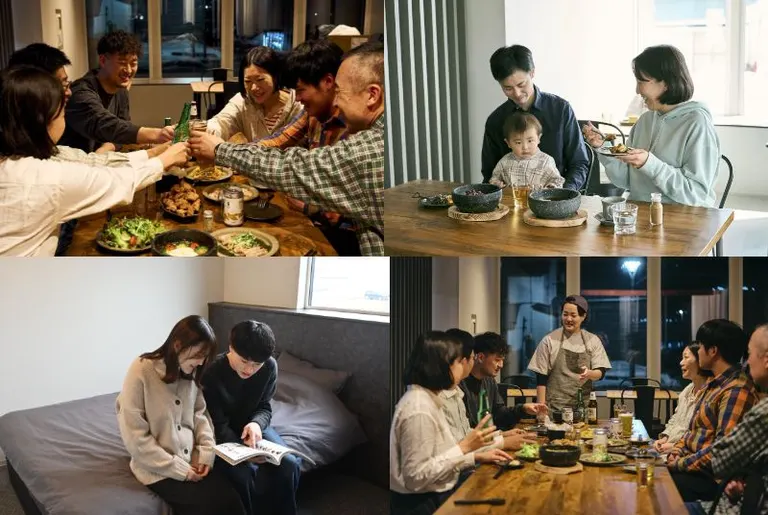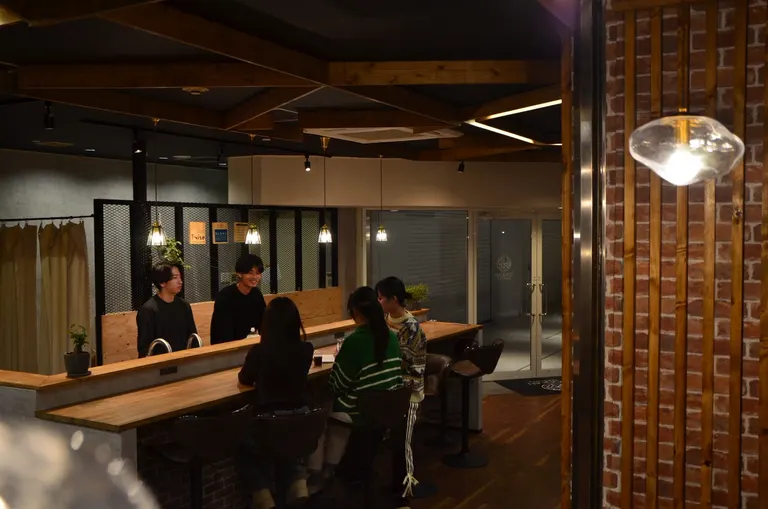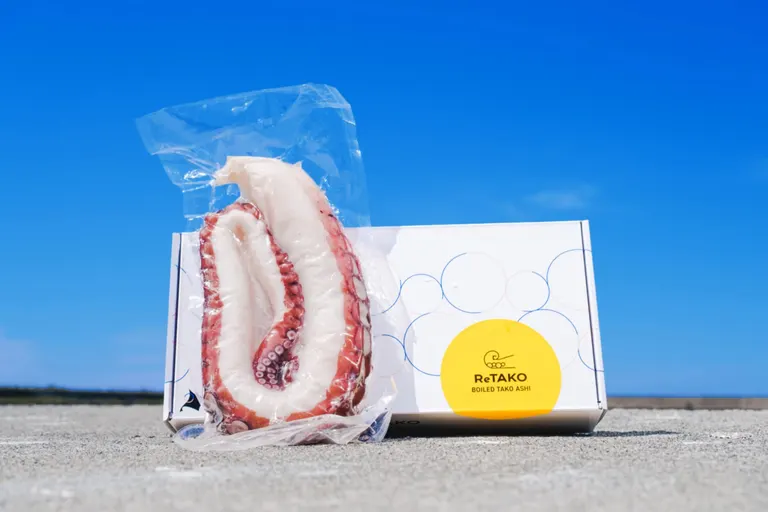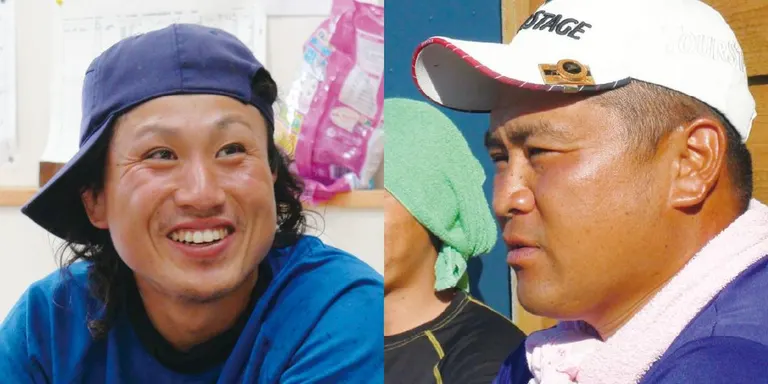
ARTICLES
The more you work hard, the more it will come back to you! Making Fishing Work in Rishiri and Sutto Towns [Jobs Salon in the Northern Land (3)
The theme of the third session was "Fishery" and the guests were Mr. Kiyotaka Nakatsuji, a kelp fisherman in Rishiri Town, and Mr. and Mrs. Takanori Mori and Ms. Misa, who catch hokke and salmon in Suto-cho.
We asked them about what made them decide to work in the fishery, how rewarding their work is, and how they make a living.
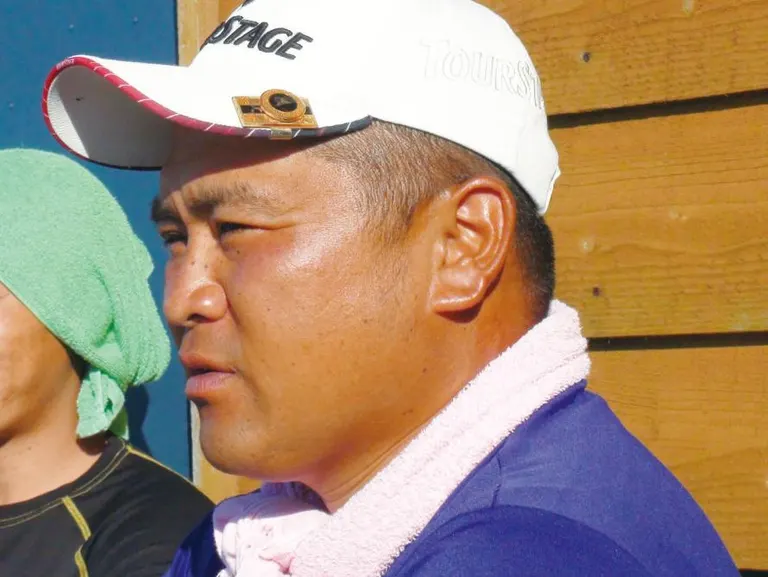 Nakatsuji Fishery Department / Kiyotaka Nakatsuji , Rishiri Town
Nakatsuji Fishery Department / Kiyotaka Nakatsuji , Rishiri Town
About Rishiri Town's Fishing Industry
Rishiri is a town of fishing and tourism, and its specialty is Rishiri kelp. The scene of drying kelp is a typical summer scene in Rishiri. Besides kelp, the town is also famous for sea urchins, and fishing for Eso Bahun Uni and Kitamurasaki Uni is conducted during the summer. They are grown on Rishiri kelp and have a mild and rich flavor. Octopus, sea cucumbers, hokke, and abalone are also caught.
What made you decide to work in the fishing industry in Rishiri Town?
I was born in Sakai City, Osaka Prefecture in 1981 and grew up in Hyogo Prefecture.
I spent my college years in Kyushu, and then, while working as a company employee in Kobe City, I visited Rishiri Island on business when I was 27 years old. This was my first encounter with Rishiri Island.
I met Oyakata through a mutual acquaintance and decided to make fishing my career on Rishiri Island.
Oyakata was looking for someone who wanted to take over and nurture the kelp cultivation facilities, business and techniques, and was looking for someone like that to succeed him.
I was told that it would take more than five years to grow kelp from scratch, but around the fall of 2010, due to my master's poor health, I suddenly decided to take over the farmed kelp business. Since then, my master was always giving me advice and supporting me nearby.
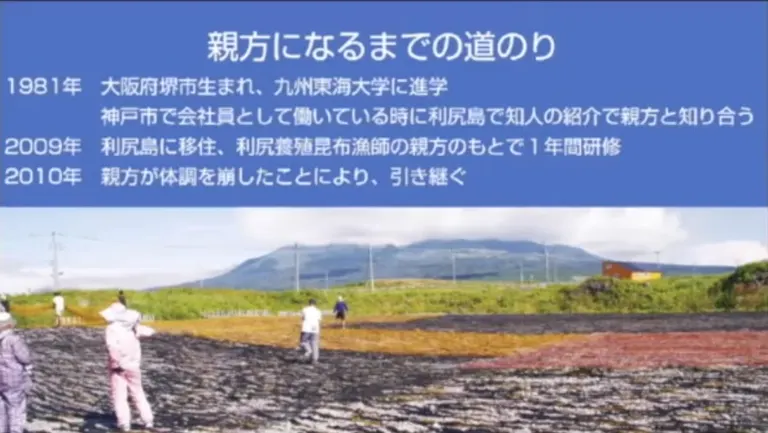
Nakatsuji Fishery Department Work
Nakatsuji Fishery Department works mainly with Rishiri kelp throughout the year. If we decide to work with a new "would like to become a fisherman," we ask the person to obtain fishing rights while we catch sea urchins and natural kelp during the fishing season from June to September, or work on cultured kelp throughout the year.
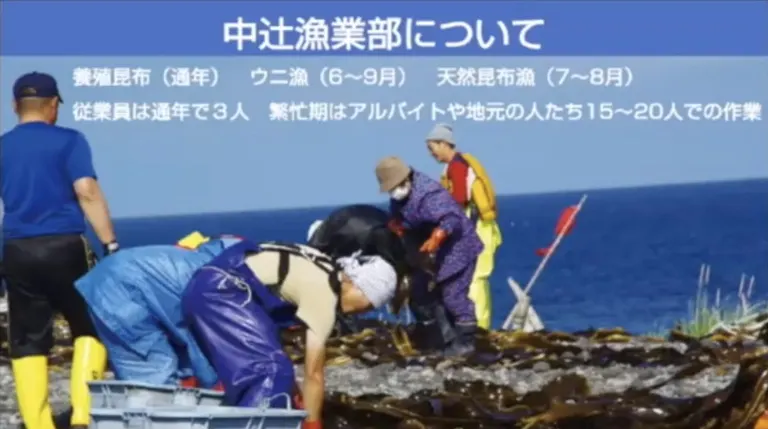
About the people working at Nakatsuji Fishery Department
Besides myself, there are three other employees. Also, during the kelp hauling season, we need a lot of manpower, so we have about 15~20 people working, including locals and part-timers from outside the island.
Let me introduce a little about the three employees, all of whom have moved here from outside the island.
One is a friend of mine from when I was in Kobe and is a former professional boxer. When I heard that he was thinking about what to do next after his retirement, I asked him if he wanted to become a kelp fisherman. Since then, we have been working together for about seven years.
We have been working together for about five years. The other person is not a fisherman, but he is working for us in the same way as if he were doing general work.
In addition, we have a young trainee who came to Rishiri for a two-week experience through an introduction from the Rishiri Town Office.
We have a place for the trainees and part-time workers to stay during the busy season, so they stay there for the duration of their stay.
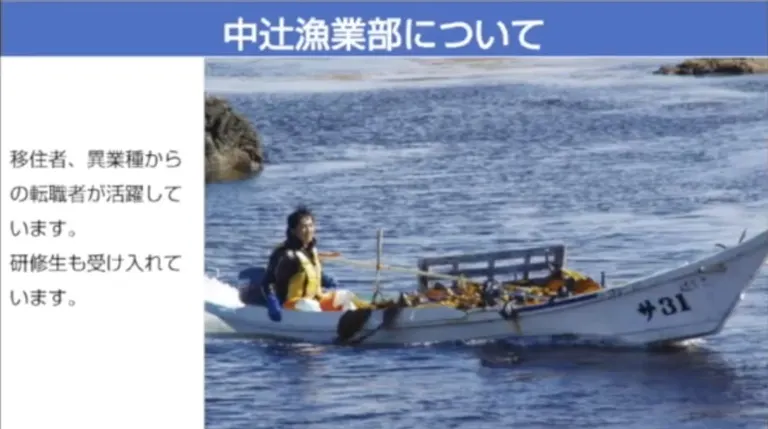
What is Rishiri kelp fishing?
Rishiri kelp can be divided into two main categories: "natural" and "cultured.
In natural kelp fishing, native kelp is harvested during the summer season.
In cultured kelp fishing, the process is similar to rice planting and harvesting. In the following summer, the ropes are brought back to the sea. In the fall, the kelp is processed, and winter comes again.
Rishiri kelp is mainly shipped to restaurants in Kyoto because it produces a clear and flavorful soup stock.
Rewarding and Attractive Job as a Fisherman
In terms of salary, it is not a fixed monthly income like a salaried worker, but rather, depending on one's own efforts, it can be good or bad.
For example, for new fishermen, their own salary is directly related to the amount of sea urchins and natural kelp they bring in. It is very rewarding to have your efforts directly reflected in your pay.
Also, as for cultured kelp, the busy summer season is when we land a year's worth of kelp, so we are very busy during that period. It may be tough if you are not able to work hard during that period.
If you can't work hard, life in the winter will be tough. What you worked hard for and what you didn't work hard for will come back to you.
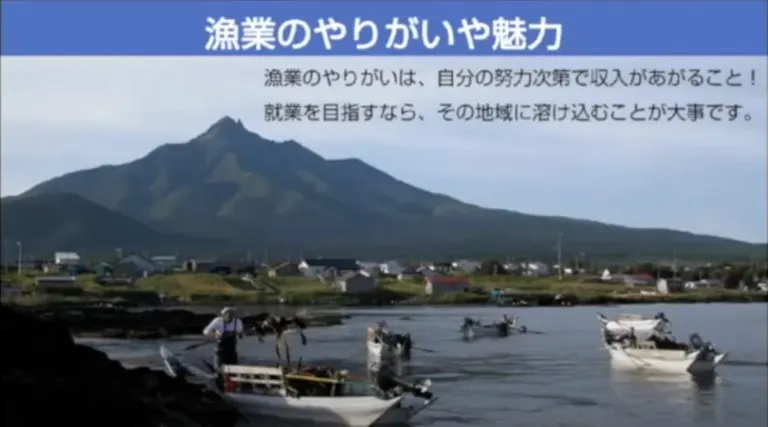
Moving from another area to become a fisherman
Fishing is a job that can only be done because of the wealth of the local community. Therefore, if you are going to land fish in a certain area, it is important to live in that area while integrating into it to some extent.
It is important to think not only about yourself, but also about the community, and make an effort to blend in.
I think it is important to do the basic things to blend in. It is important to greet people when you see them, cut the grass around your house, and take care of your surroundings so that you are not seen as sloppy!
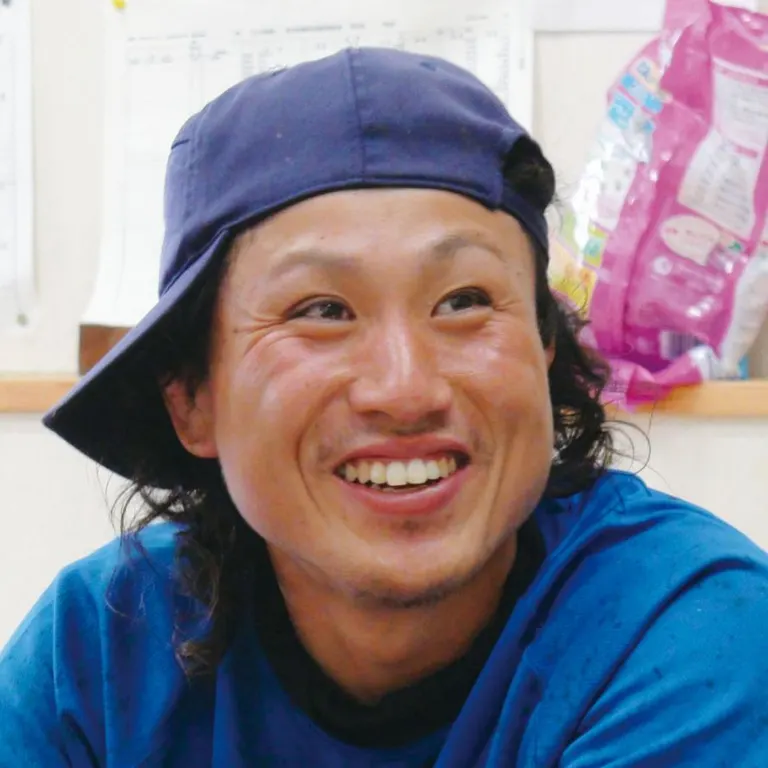 Mr. Takanori Mori, Maruhon Konishi Fishery Co.
Mr. Takanori Mori, Maruhon Konishi Fishery Co.
About the Fishery in Sutou Town
The town of Sutsu is located in southwestern Hokkaido. It has a history of prosperous herring fishing and has a herring palace. Recently, herring are coming back again.
As for the percentage of landings, 80% of the catch is hokke, followed by squid, salmon, and conger eel. As for shellfish, scallops are cultivated year-round, and oysters are branded as "Kotobuki" to expand sales channels. Sea urchins are caught in summer.
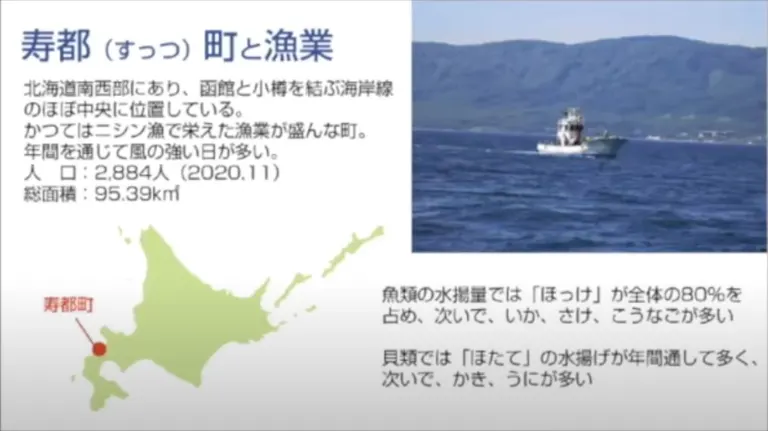
What made you decide to work in the fishing industry in Sutou Town?
I was born and raised in Eniwa City, Hokkaido, where there is no ocean, and in a family with no connection to the fishing industry.
I worked in real estate and airport security, but my love of fish and desire to have a rewarding job led me to participate in the Hokkaido Fishery Employment Support Fair. It was there that I met my current master and here I am today.
I chose the town of Sutsu because it was relatively close to Eniwa, where I had been living, and because I was attracted by the master's personality. Another major factor was that my master gave me concrete information about where to live, salary, etc., which helped me visualize what it would be like.
I was already married at the time, so I was very nervous to tell my wife that I was going to become a fisherman and move to Sutsu Town, but I was grateful that she accepted the news relatively easily.
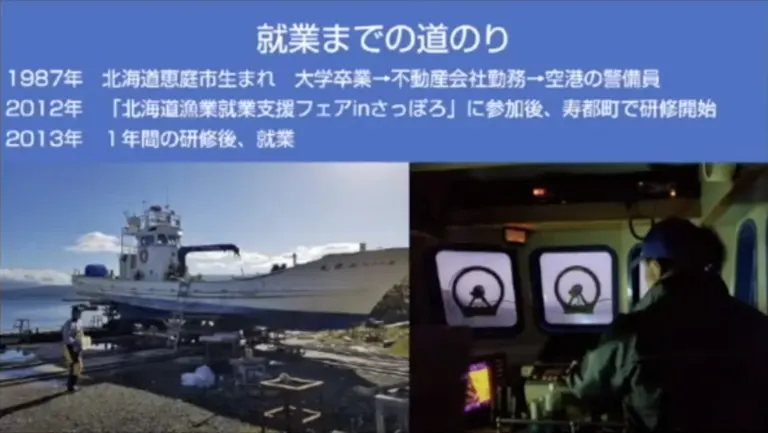
What I wanted to do was catch fishery
Maruhon Konishi Fishing Co., Ltd. also engages in aquaculture, but its main activities are fishing with "set nets" and "kokotate nets.
The large photo on the left is of the hokke fishery. The hokke fishing season is from November to March, and the fish are caught using set nets. The catch in the picture is about 20 to 30 tons! If you go there, the catch is usually around this amount.
The photo on the right shows salmon, caught from September to November. Salmon and yellowtail caught in summer are caught in fixed nets. Last year's hokke catch was about 1,000 tons.
I like aquaculture, but I find it more rewarding to catch fish. The thrill of catching a fish is immeasurable!
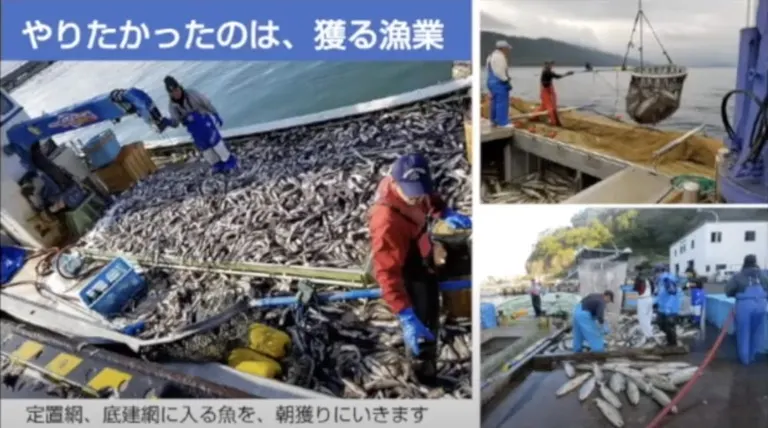
About the people who work at Maruhon Konishi Fishery
Sixteen men, including the foreman, go out fishing, and three women do the sorting and office work.
Half of the men, eight, are from out of town, and three of them are from outside of Hokkaido.
About four of them, like ourselves, came here as a result of the Hokkaido Fishery Employment Support Fair.
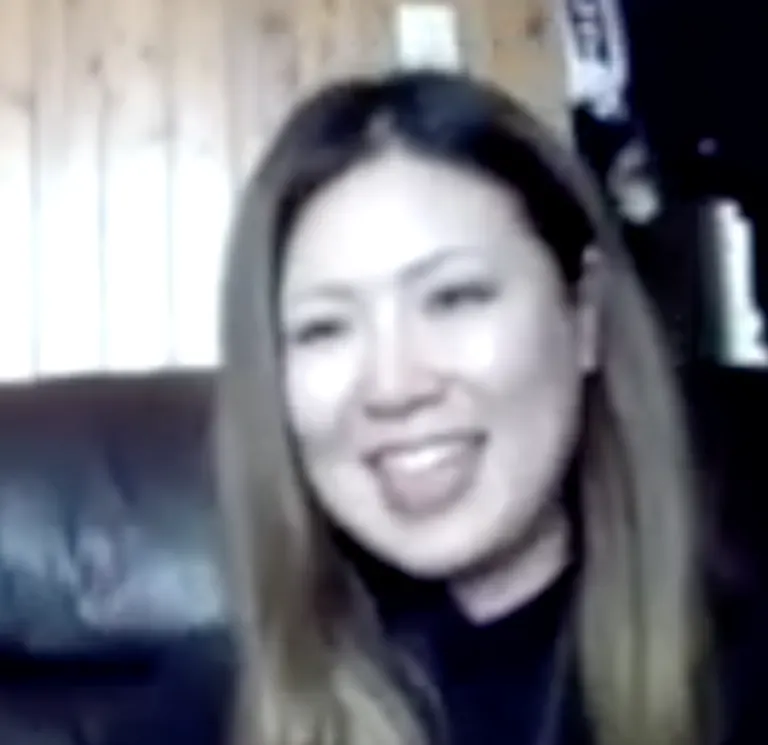 Maruhon Konishi Fishery Ltd.
Maruhon Konishi Fishery Ltd.
I don't ride a boat, but sort fish and do clerical work. I never expected to work in the fishing industry, but it is fulfilling and fun.
To be honest, at first I had never touched many fish and didn't even know what a hokke looked like. As I got on with it, I learned a lot of things, the people around me treated me well, I got used to the job and life, and I started to enjoy it. After all, I came to really like fish. The freshness of the fish was completely different from the fish I had eaten when I was in Eniwa, and it really changed my image of fish.
Moving from another area to become a fisherman
Basically, if you are motivated, the people of the town will accept you!
As Mr. Nakatsuji said, if you are not accepted by the people of the town, it will be very difficult. This is not limited to the town of Sutou, but I think it is true in any community.
I believe that if you greet people without fail, show up at events, and interact with the people of the town in an honest manner, they will understand you!
As for housing, the town has a housing facility to promote permanent residents. Since many people come from outside of the town, the system and facilities are quite good.
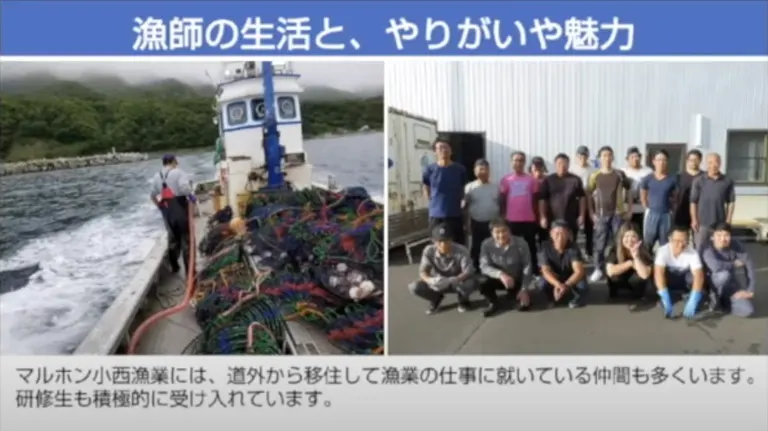
Q&A Corner

 Nakatsuji Fishery Department / Mr. Kiyotaka Nakatsuji, Rishiri Town
Nakatsuji Fishery Department / Mr. Kiyotaka Nakatsuji, Rishiri Town
The busiest time of the year is during the kelp salvage season!
I work on this schedule for about one month out of the year.
2:00 a.m. - 2:30 a.m. ... Wake up
3 a.m....Departure from port
3~4 p.m...end of work
 Maruhon Konishi Fishery Ltd.
Maruhon Konishi Fishery Ltd.
The busiest season is summer.
4:00 a.m. to 4:30 a.m.: Wake up
5:00 a.m.: Departure
7:30 a.m.: Return to port
7:30 a.m.-10:00 a.m.: Sorting and shipping to various locations
10:00 a.m. - 12:00 p.m. ...maintain nets, set hockey nets, repair nets, etc., weather permitting
12:00 p.m. - 1:00 p.m. ... Lunch break
1:00 p.m. - 5:00 p.m. ...same as in the morning
5:00 p.m....end of work

 Nakatsuji Fishery Department / Rishiri Town Mr. Kiyotaka Nakatsuji
Nakatsuji Fishery Department / Rishiri Town Mr. Kiyotaka Nakatsuji
Rishiri kelp is a seasonal job, so when it is busy, I am quite busy, but when it is not, I can take time off. Specifically, from January to mid-March, May, October, and the beginning of November are quite a few times when I am off.
When I was working as a company employee, I had to come to work at a certain time every day...so my work schedule has changed a lot and I have more time off.
On my days off, I take time to interact with the community and spend time with my children and family.
 Mr. Takanori Mori, Maruhon Konishi Fishery Co.
Mr. Takanori Mori, Maruhon Konishi Fishery Co.
I am fulfilled because I am able to do what I want to do, and the more I work hard, the more I earn, so I can work hard.
I have Sundays off, and I go out of town to do shopping with my wife.
Conclusion
In this interview, we spoke with two fishermen, Mr. Nakatsuji, who has taken over the farmed kelp fishery in Rishiri Town, and Mr. Mori, who is working in the catch fishery in Sutsu Town. They are both very nice people who feel a strong sense of fulfillment in their work as fishermen and enjoy it while at the same time making efforts to interact with the local people. If you are interested in working in agriculture, forestry, and fisheries in Hokkaido, why don't you try participating in online events or consulting with local municipalities to materialize your dream one step at a time? The next "Northern Land Job Salon", theme is "Forestry". It will be held on Sunday, January 17, from 14:00. Please sign up here!
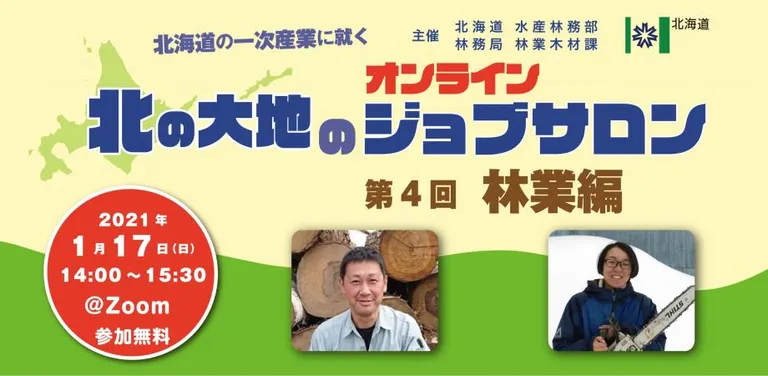
Northern Land Job Salon, Part 4: Forestry
To sign up, please click on this image.






